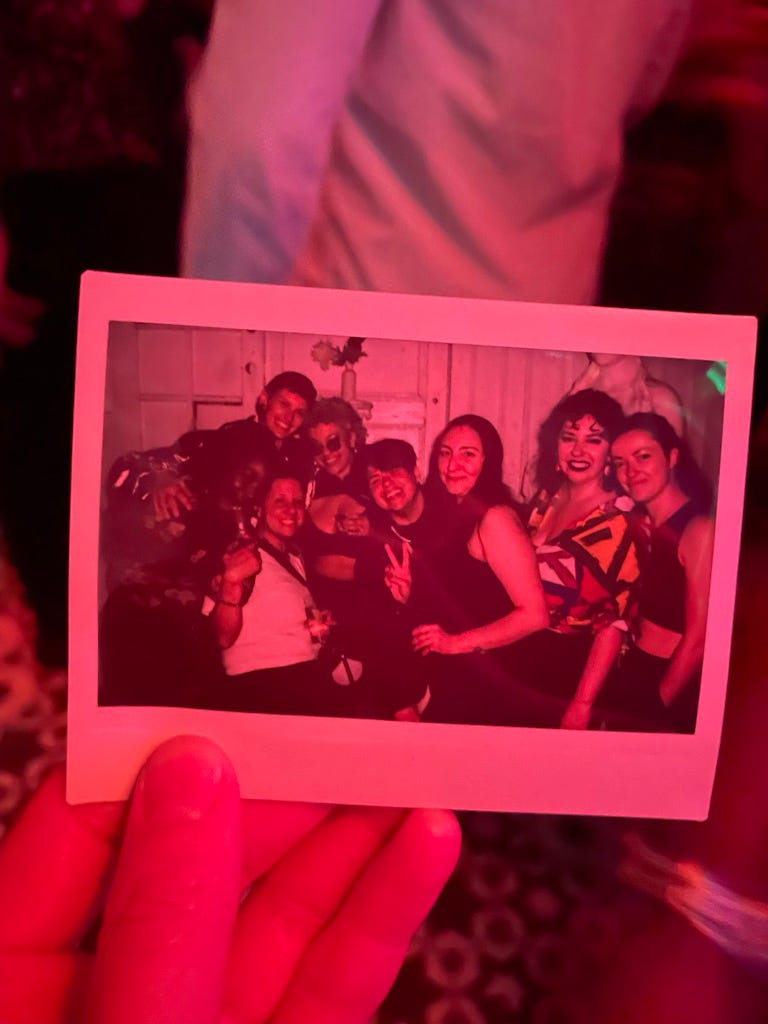“The fuck is this?”
It’s a random Wednesday morning, and a letter has been slipped under my apartment door.
“Weird,” Oden says, picking it up off the floor.
It’s a notice from our landlord, stating that he’ll be reporting our rent payments to the credit bureaus each month starting immediately.
“Jesus fucking Christ.”
I send a message to the group chat we have with our neighbors. Everyone has received the same letter. Everyone is bothered.
“Is this legal?”
“I think only if we opt in?”
The timing is not coincidental. A handful of our neighbors have been withholding rent due to maintenance and repair issues, specifically black mold, leaking and collapsed ceilings, and literal holes in the walls. This is legal. Tenants are entitled to withhold rent in these kinds of conditions. It’s also often the only tactic that actually works.
And yet.
“Apparently, this is legal,” one of our neighbors chimes in, including a link to a recent news story.
Landlords are also legally entitled to penalize us for it.
According to Curbed, landlords have been using this credit reporting tactic more and more since 2020. It seems to have begun as a reaction to the COVID-era’s eviction moratoriums, when landlords had little recourse against tenants who were either unwilling or unable to make rent during the pandemic’s early days. Since then, they’ve been tipping each other off, using it more and regularly.
“Shouldn’t we able to opt out?” someone asks.
Indeed, you would think so. Landlords have branded this practice as a path for bank-poor tenants to build a positive credit history. Framed that way, it seems like an invitation you should be able to decline. But the reality is much less benevolent. Consent is not required for enrollment in this “benefit,” and it’s pointedly only offered when tenants start withholding rent in an organized fashion—aka, when we exercise our power.
This is deliberate. It’s also insulting. Reporting withheld rent payments as “late” can have a swift and negative effect on a tenant’s credit report, which can negatively impact a whole slew of other things in a tenant’s life—our ability to secure a loan, land a job, or find new housing. We all know this. Claiming it’s for our own good is both manipulative and condescending. None of us were born yesterday. The real message is clear: accept poor and sometimes illegal living conditions, or get financially blacklisted.
“I don’t trust this,” one of our other neighbors adds. “He forgets to log rent payments for weeks, even when we make them on time.”
Indeed, our particular landlord has contacted many of us at different times, claiming we missed or were late on a rent payment when in fact, the rent had been paid on time. Generally, we’re able to solve this one-on-one. We send him documentation of the rent, and his little ledger book gets fixed. But what happens when his clerical sloppiness gets reported as our personal failing?
The answer is short, clowns: nothing good!
I’ve written before—briefly, vaguely—about my involvement in tenants’ organizing in Brooklyn. But I haven’t really gotten into it before, because writing about it feels uncomfortable. I don’t feel funny when I write about it; the entertainment value feels lower. It also feels a little risky. What if my landlord stumbles upon The Clown Show? What kind of target might I be putting on my back?
But as we enter a new age, one where capitalism is truly out of control, one where the corporate oligarchy we’ve been living under has fully pulled off its mask, I feel like it’s time to talk about it. The looming horrors are growing larger, more immediate. The clowns in the circus tent are shifting from generally menacing to directly threatening. And tenant organizing is my one small thing, my actionable, day-to-day fight, that tethers me to the broader universe of community organizing and collective action—which is, ultimately, our way out of this whole mess.
We’ll have to take care of each other to make it through. We’ll also need to work collaboratively to build something new. What could our world look like if it was sustainable, cooperative, and functional? How would it work? How do we get there? The answer lies in our collective power. Tenant organizing, for me, is one way to build that power. And so, I’m sharing it with all of you clowns. May this and future related stories inspire your own journeys.
“I’ll talk to the union,” I volunteer, fingers already flying in the relevant group chats.
There are two active tenant unions in Brooklyn right now: the Crown Heights Tenant Union (CHTU), the older of the two, and Brooklyn Eviction Defense, an offshoot that represents members from all over the borough. Within these organizations, there are entire buildings whose neighbors all talk to each other, and who respond to landlord tomfoolery as a united front. There are housing lawyers who provide free advice. There are folks who show up to housing court appointments, just to show solidarity. Mostly, the tenant unions are a community of people who believe we all have a right to our homes.
And isn’t that wild? That such a belief is a defining characteristic of a specific, intentional community of people? I feel like this should just be an intrinsic part of the social contract, the idea that the space where you live—where you cook and shower and raise children and hang photos and sleep—is a space that’s yours. No one should be able to walk in the door and announce you’ve got 30 days to leave. Especially someone who doesn’t even live there with you, someone who has their own place to live. Your home is simply none of their business.
“Just got this notice,” I report to the union folks, sending a photo of the letter that came in under my door. “Anyone else dealing with this?”
“Yeah,” a few people chime in, almost immediately. “It fucking sucks.”
Stories, context, and advice start pouring in. Meanwhile, my own neighbors send a poll.
“What day would work best for everyone to meet?” the poll-maker asks. “We’ll figure this out together.”
“I’ll compile the union’s advice and bring it to the meeting,” I say, choosing the dates that work best for me.
And this is how community is made. One material problem at a time, dealt with in solidarity with the folks around us. We’re all here to figure this thing out together.
I’m not sure how this’ll all shake out, but I do know I’d like to keep telling y’all about it. Some days, this stuff is all I can think about. But this circus is collaborative—do y’all care? Are you interested? I might tell you about it anyway, even if you’re not, but I’d rather get there together. What issues have you had with your landlords, and how have you dealt with them? What went well? What went wrong? What resources do you wish you had access to? Tell me! I genuinely want to know!
Because in my opinion, in this capitalist hellscape we’re living in, landlords are some of the biggest clowns of all. And not in the fun way!
So, let’s wipe off their face paint together, shall we?










